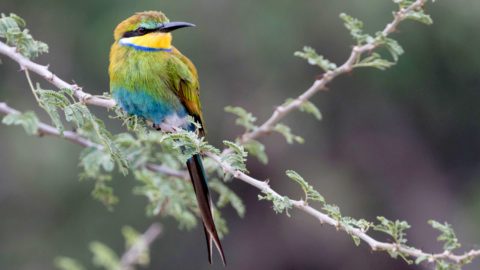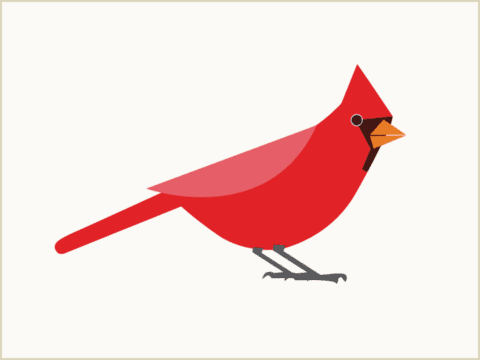Macaulay Library’s Best Bird Photos 2022
Featuring more than 50 contributors
Pink Robin, Australia, by Laurie Ross/Macaulay Library. December 21, 2021From sunbirds to bee-eaters, owls to albatrosses, we chose some of the very best of the Macaulay Library's 32 million bird photos.
Photos selected by Living Bird and Macaulay Library staff, including Jessie Barry, Jay McGowan, Andrew Spencer, Kathi Borgmann, Cullen Hanks, Gustave Axelson, Joanne Avila, Marc Devokaitis, and Jillian Ditner. From the Winter 2022 issue of Living Bird magazine. Subscribe now.
The Macaulay Library, originally the Library of Natural Sounds, began collecting and preserving animal sounds in 1929. By 2015 the library expanded to include photos of birds. Thanks to more than 100,000 eBirders and photographers, today’s Macaulay Library is filled with absolutely stunning shots of birds, some of which are on display in this article.
One of the things that makes the library so special is the natural history captured—not only glamor shots of birds, but also images highlighting behaviors, like the Musk Duck (in this article) that’s puffing out the black lobe below its bill and fanning its tail in a territorial dispute. Special moments captured in the nick of time. “The photos in the library,” says Mike Webster, director of the Macaulay Library, “capture dazzling colors, acrobatic behaviors, and rare sights that few of us will witness in person.”
The images and audio in the Macaulay Library also power birding tools like the Merlin Bird ID app, and they fuel research aimed at understanding and protecting the world’s biodiversity. Scientists are now mining the photos in the library to better understand diets, plumage variation, and other understudied aspects of bird biology. More than 25,000 photos are added to the Macaulay Library daily, building the world’s best photographic archive of birds. Webster calls it “a treasure trove for researchers. They can dig in and get answers to a myriad of questions to help us understand birds.”
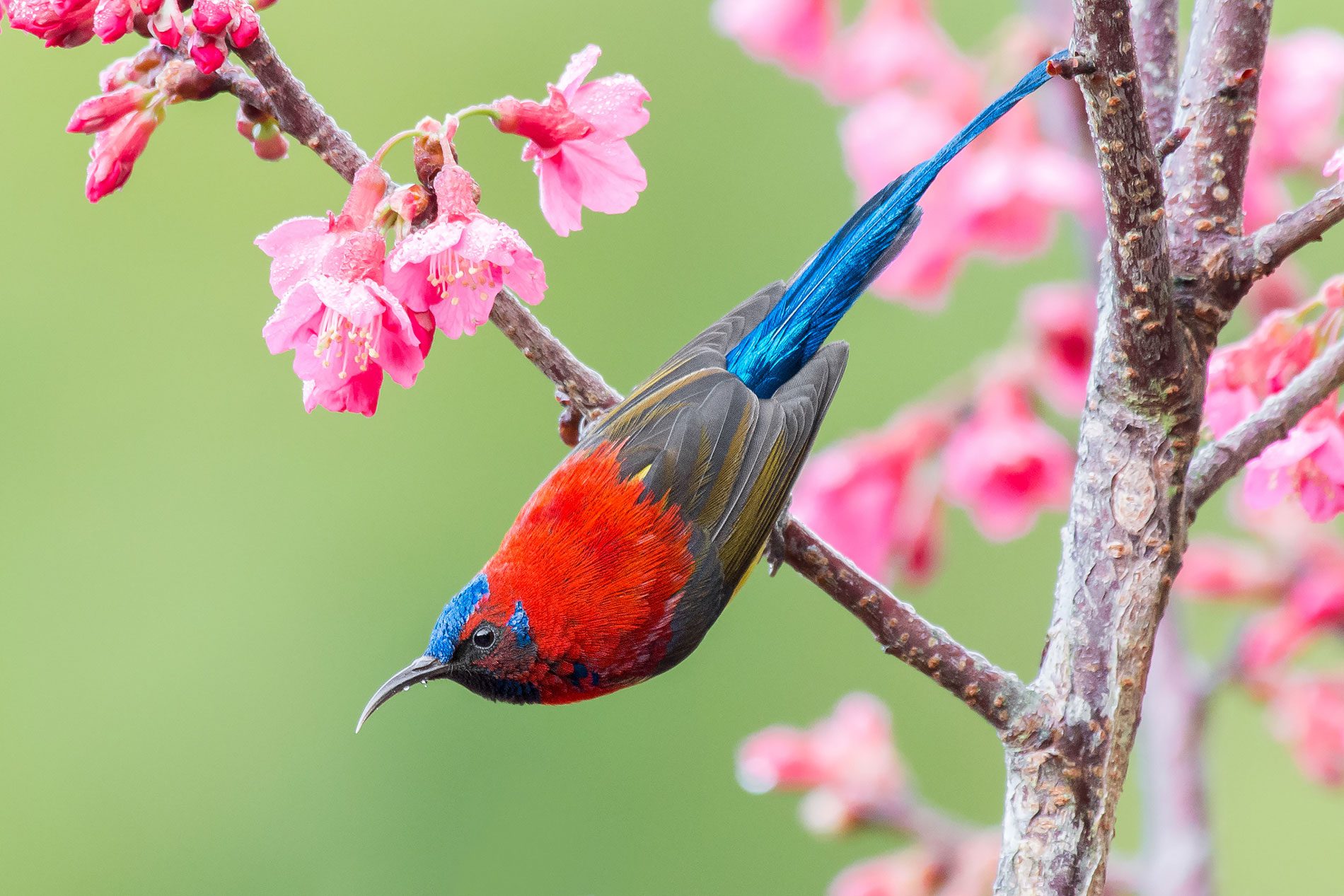
Birds of Many Colors
The full spectrum and splendor of the world’s birdlife are on full display among the photos of 10,346 bird species in the Macaulay Library archives. “Color is a fundamental aspect of birding—it’s often how we humans identify species,” says Kathi Borgmann, Macaulay Library communications coordinator. “But color is also important for birds, for signaling, choosing mates, hiding, and more.”
Agami Heron, Colombia, by Andrés Posada
Swallow-tailed Bee-eater, Uganda, by Zak Pohlen
Blue Pitta, Thailand, by Dorian Anderson
Shining Sunbeam, Ecuador, by Jory Teltser
Whitehead’s Trogon, Malaysia, by Jonathan Eckerson
Cuban Tody, Cuba, by Christoph Moning
Bluethroat, USA, by Bryan Calk
Multicolored Tanager, Colombia, by David Monroy Rengifo
Steller’s Jay, USA, by Fyn Kynd
Anna’s Hummingbird, USA, by Ryan Sanderson
Green Broadbill, Singapore, by Saravanan Krishnamurthy
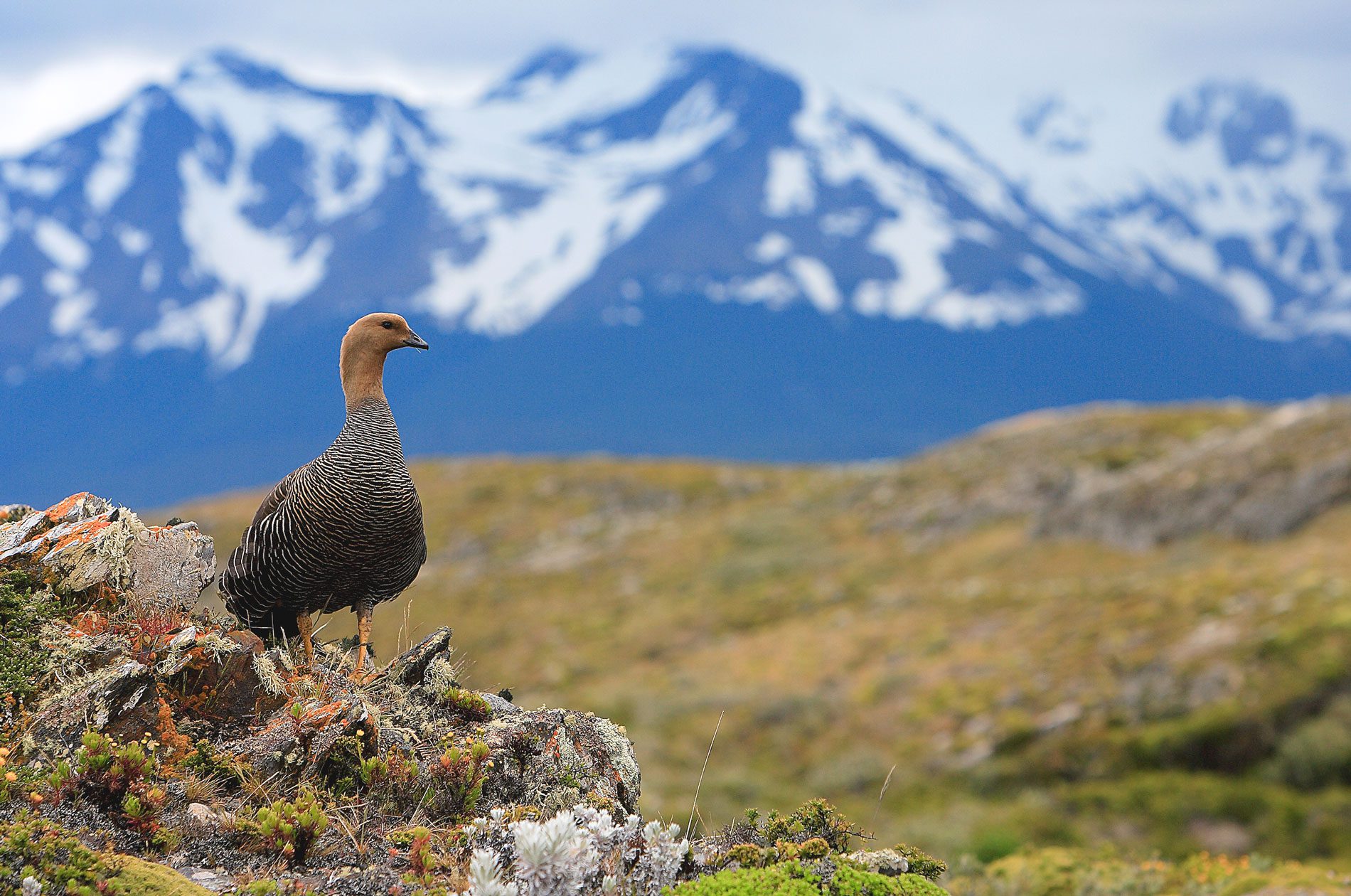
Birdscapes
Birds so often are products of their environments, and for some birds their favored environment shows up in their common name. Take the Upland Goose for instance—proof that not all geese are associated with water, as it frequents the high-elevation steppes in Patagonia. The Torrent Duck is also aptly named, as it is always found close to rocky rapids with well-oxygenated waters that host the particular kind of insect larvae that are the duck’s main food source.
Torrent Duck, Chile, by Hederd Torres García
Dusky Grouse, USA, by Joshua Covill
Mallard, Germany, by Christoph Moning
Willet, USA, by Derek Hameister
Lesser Rhea, Chile, by Dominic Garcia-Hall
Green Peafowl, Thailand, by Ayuwat Jearwattanakanok
Surfbird, Oregon, by Bryan Calk
Boreal Chickadee, Canada, by Anne Auclair Moe
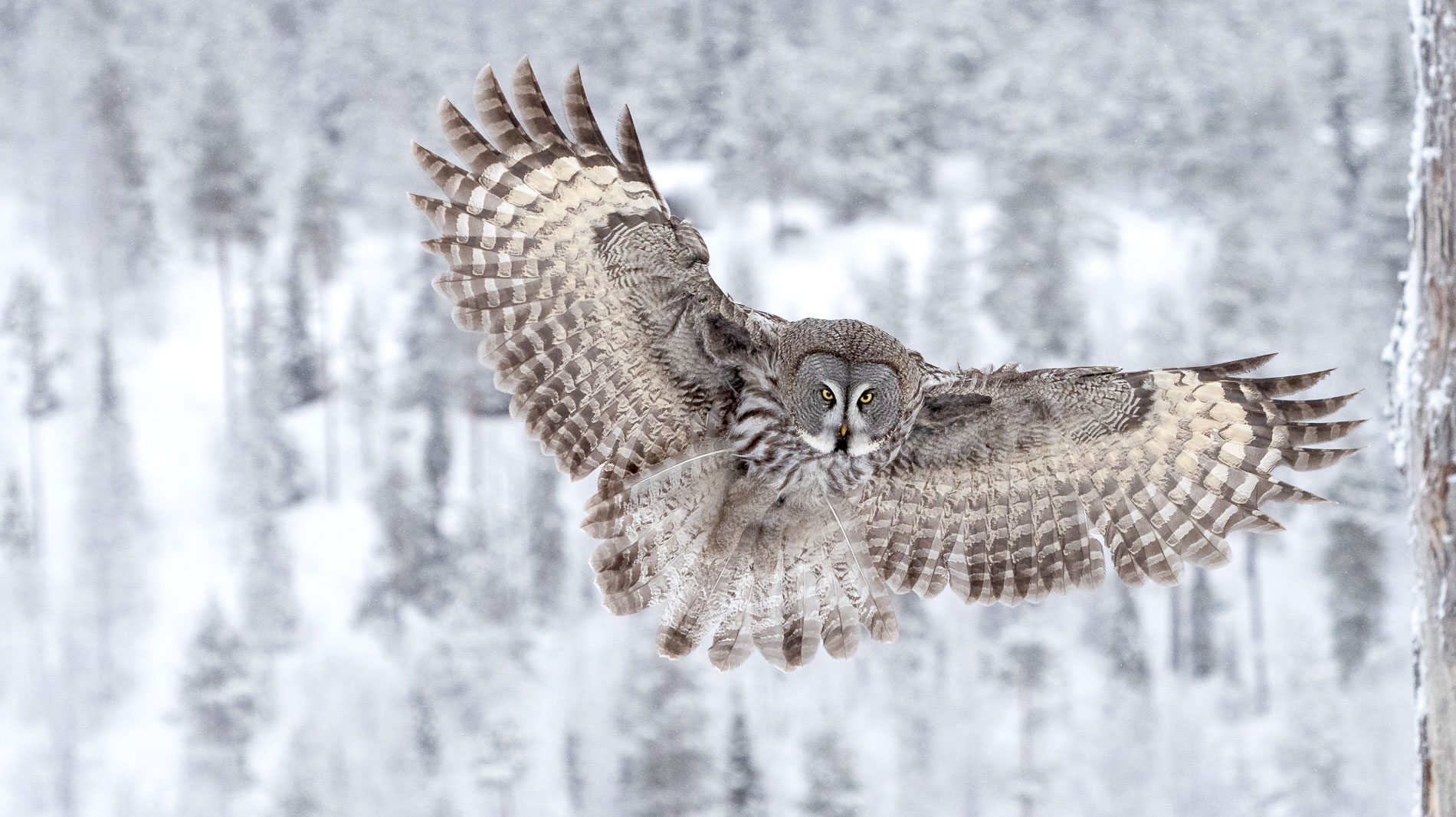
In Flight
Action shots are among the most difficult to capture in bird photography. Yet the many talented photographers who contribute to the Macaulay Library show the array of ways that birds hover, dive, swoop, and soar. For Argentine photographer Pablo Re, preparation makes the difference in getting the perfect action shot: “For all my photos, I investigate the behavior of the bird beforehand. In the particular case of the White Monjita, she was perched on a bush and made repetitive movements, which helped me prepare the photo. The White Monjita is a fairly common bird, but it is very distrustful. I was lucky she was very entertaining and she let me get close.”
Black-legged Kittiwake and Parasitic Jaeger, Svalbard (Norway), by Doug Gochfeld
White Monjita, Argentina, by Pablo Re
Ruby-topaz Hummingbird, Aruba, by Michiel Oversteegen
Magnificent Frigatebird, USA, by Chris Brown
Chatham Albatross, New Zealand, by Michael Stubblefield
Bearded Vulture, Spain, by Marc Gálvez
Lapland Longspurs, USA, by Ed Wransky
Barn Owl, England, by Ben Lucking
Lapland Longspur, USA, by Ryan Sanderson
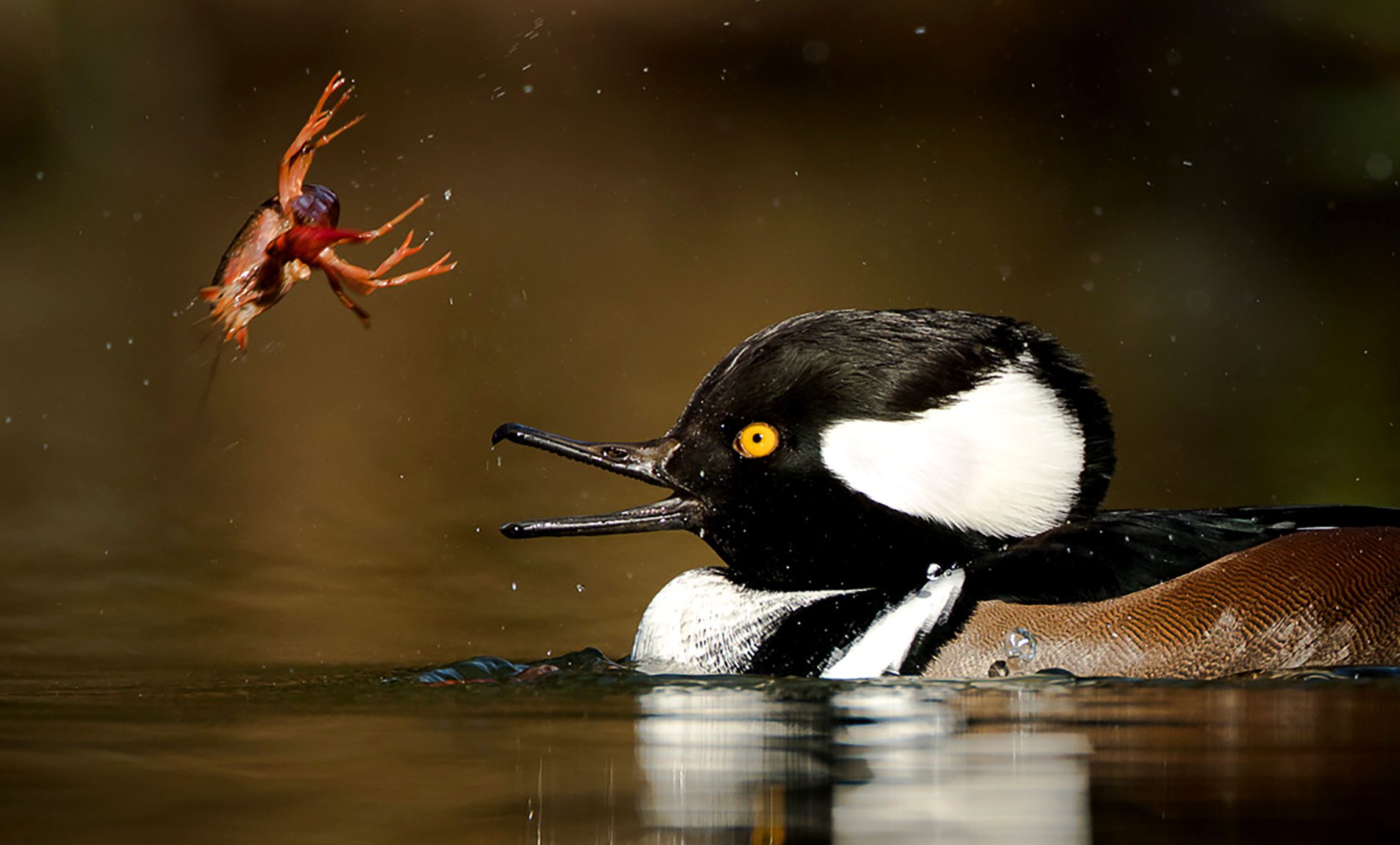
Rare Moments
Hidden among the millions of Macaulay Library photos are several uncommon sights, from a Northern Cassowary with its neck and wattle fully puffed up for a breeding display, to a ghostly looking leucistic American Crow—to a Brown Skua foraging for food up a seal’s nose.
Kagu, New Caledonia, by David Irving
American Crow, Canada, by Gord Gadsden
Brown Skua, Macquarie Island (Australia), by Robert Hamilton
Least Bittern, USA, by Davey Walters
Musk Duck, Australia, by Lissa Ryan
Great Bustard, Spain, by Ana Mendes do Carmo
Adelie Penguins, Antarctica, by Brian Sullivan
Bat Falcon, Brazil, by Nicole Desnoyers
Bar-tailed Godwit, Australia, by JJ Harrison
Burrowing Owl, USA, by Brian Browne
Red Crossbills, Canada, by Sean McElaney
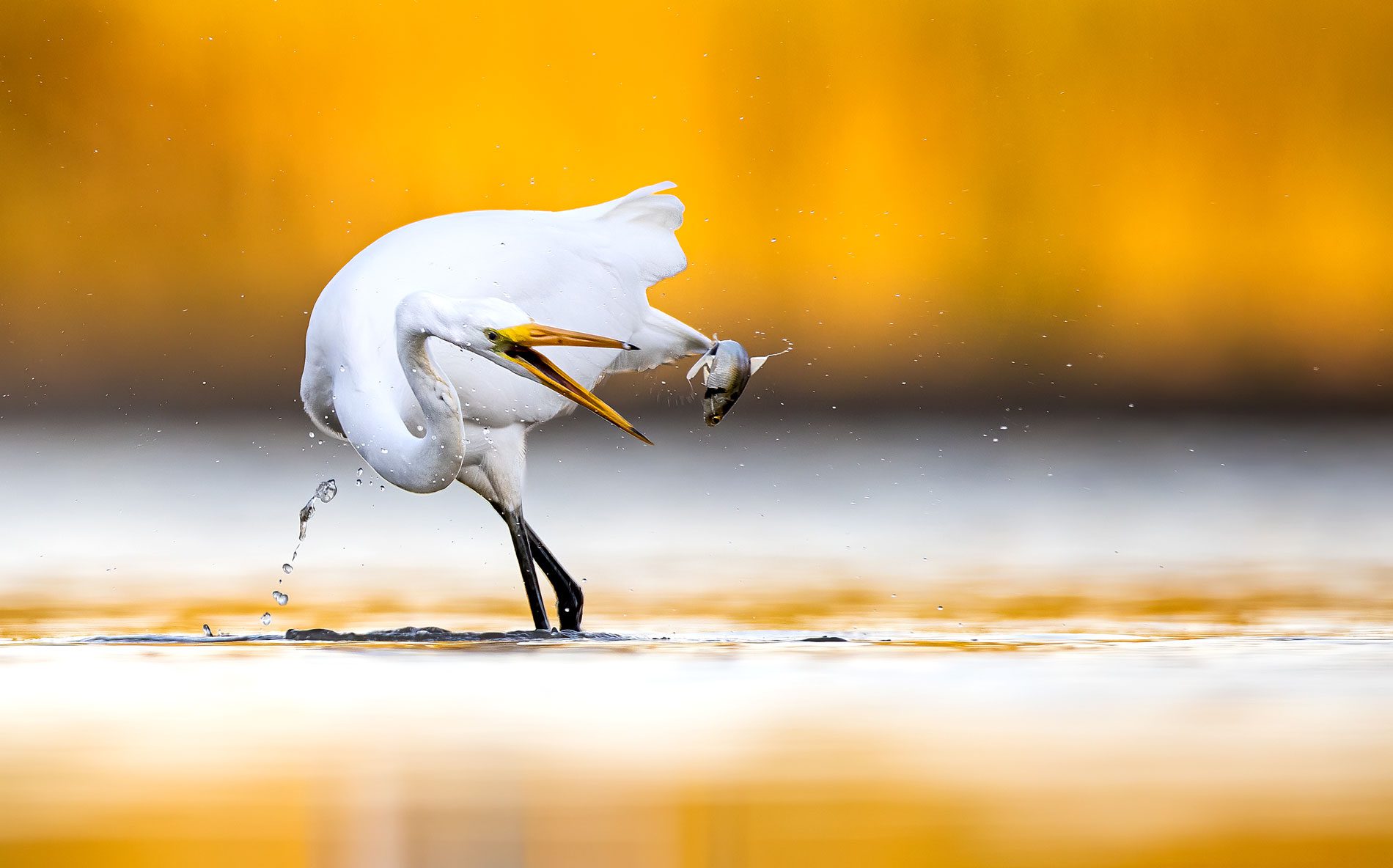
On the Water
An element of water adds a little magic to any bird photo, whether the mirrored reflection of a bird’s form above the water’s surface or the moment-frozen-in-time aspect of water droplets suspended in air, dripping from a Common Nighthawk’s beak. Photographer Philip Chaon says a little luck and perfect timing coincided while birding one day at a small pond in New Mexico: “This pond is the only open water for miles around. Late in the afternoon, a dozen or so nighthawks appeared to drink. As they came down to take a sip, they would lift their wings and glide slowly, almost pausing as they took a big gulp before lifting off.”
Black-necked Stilt, USA, by Dorian Anderson
Brown Booby, Japan, by yann muzika
Great Crested Grebe, England, by Isaiah Rowe
Common Nighthawk, USA, by Phil Chaon
Gentoo Penguin, Antarctica, by Andrew Spencer
American Bittern, Canada, by Sean Evans
Hooded Grebe, Argentina, by Daniel Pettersson
King Eider, Norway, by Jessie Barry
Purple Sandpiper, USA, by Martina Nordstrand
Sunbittern, Costa Rica, by Diego Quesada
Eared Grebe, England, by Ben Lucking
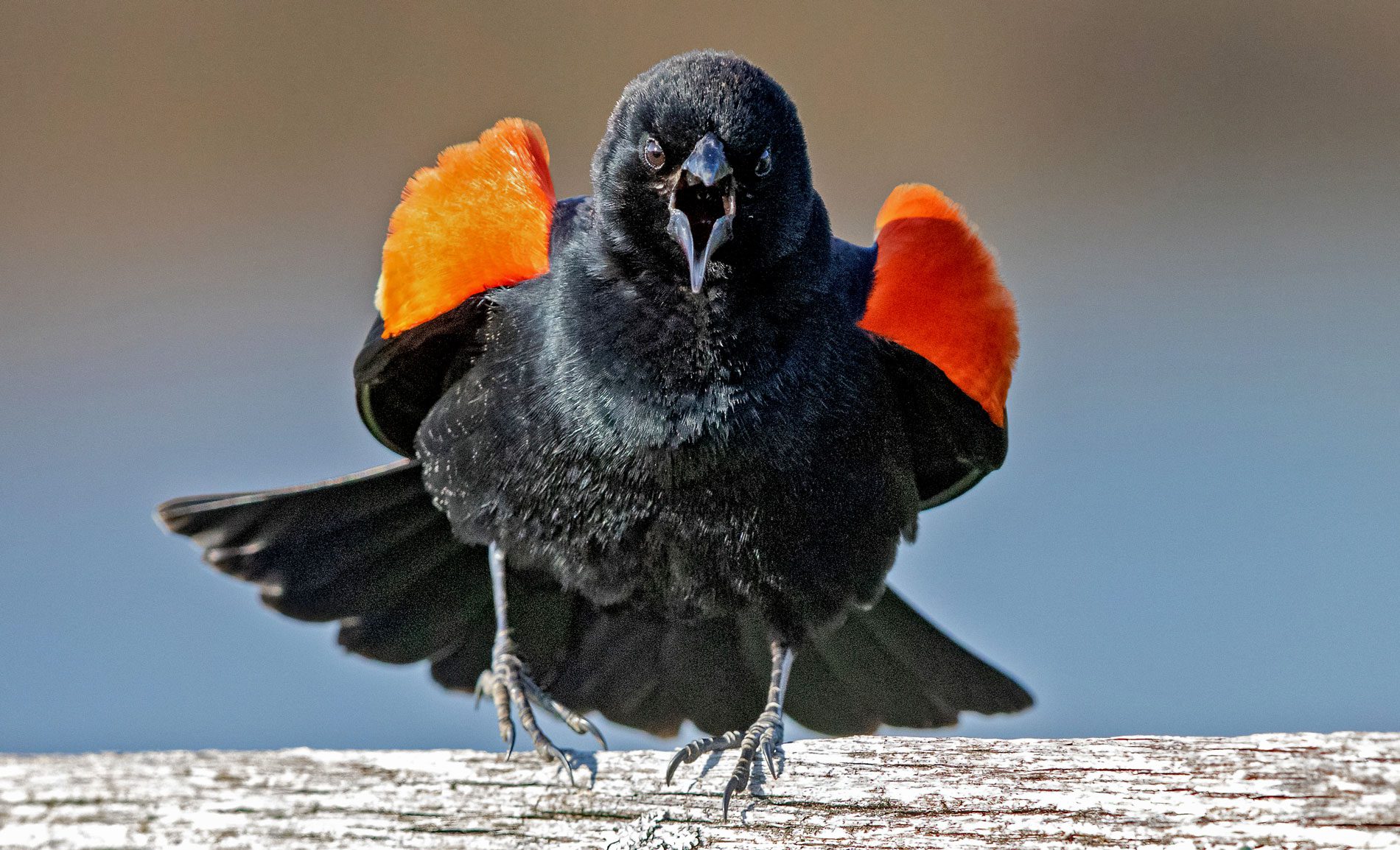
Bird-a-tude
Thousands of photos in the Macaulay Library show off the full range of bird behaviors, from a raging Northern Goshawk to an in-your-face Vermilion Flycatcher; from a gaping Tawny Frogmouth to a Short-eared Owl in an odd pose stretching its wings.
Short-eared Owl, USA, by Brad Imhoff
White-tailed Eagles, Steller’s Sea-Eagle, and Large-billed Crows, Japan, by Christoph Moning
Vermilion Flycatcher, USA, by Daniel Clark
Northern Goshawk, Italy, by Mario Vigo
Turkey Vulture, USA, by Kathryn Young
Long-eared Owl, USA, by Matt Brady
Tufted Coquette, Trinidad and Tobago, by Luke Seitz
Little Ringed Plover, Turkey, by Ferit Başbuğ
Red-breasted Nuthatch, USA, by Phil Chaon
Northern Saw-whet Owl, Canada, by Zane Shantz
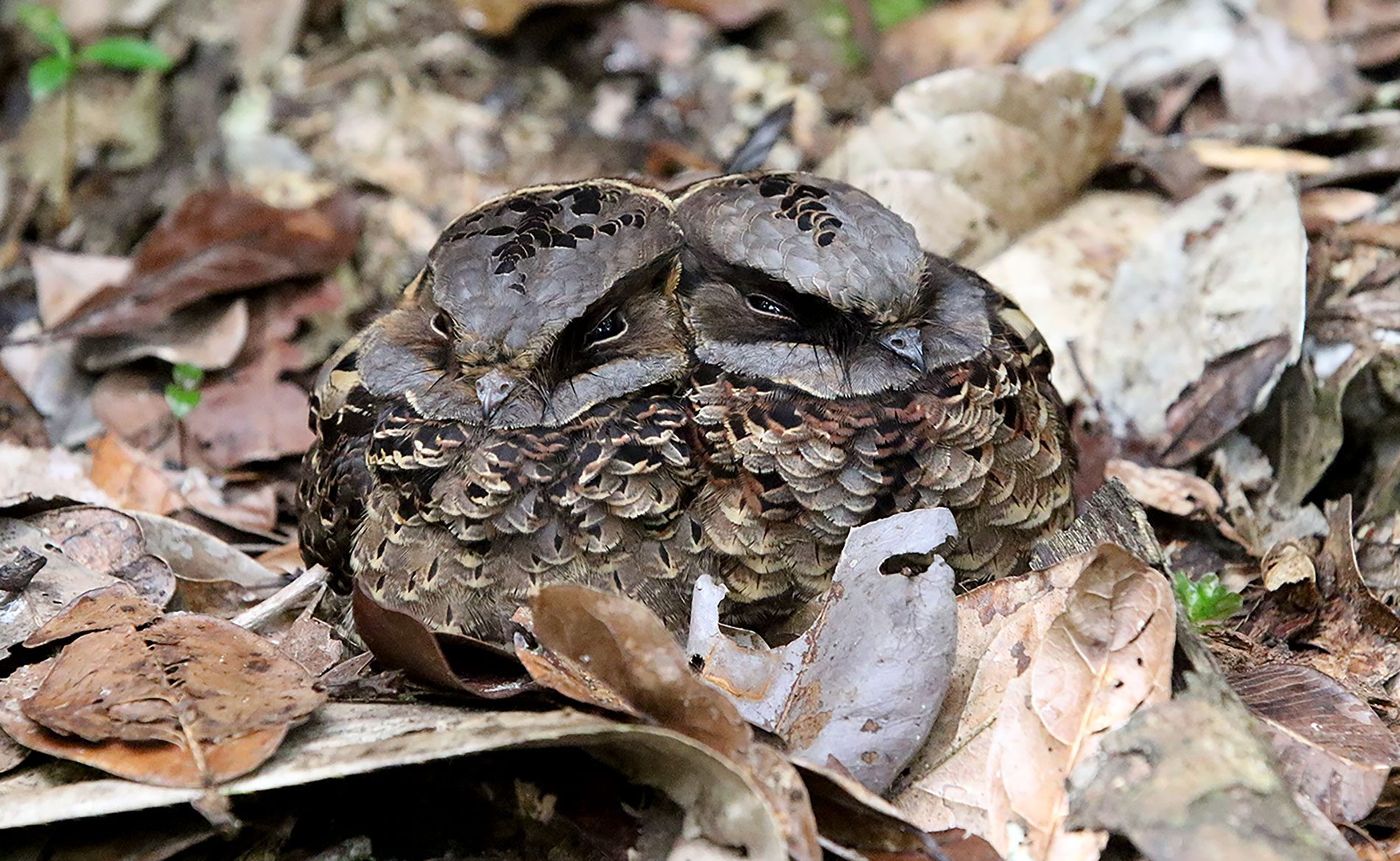
Pair Bonds
Birds engage with their mates in many different ways, and the Macaulay Library captures many of the behaviors that birds demonstrate to strengthen pair bonds. “The displays that birds use to attract their mates can be stunning, sometimes acrobatic, and often sweetly touching,” says Mike Webster, director of the Macaulay Library. “Sometimes a contributor to the archive was in just the right place at just the right time to capture a courtship display in action.”
Parakeet Auklets, USA, by Nigel Voaden
Splendid Fairywrens, Australia, by Indra Bone
Wood Ducks, Canada, Farshad Pourmalek
Silvery Grebes, Argentina, by Daniel Pettersson
King Penguins, South Georgia, by Shailesh Pinto
Northern Gannets, Canada, by Blair Dudeck
Royal Tern, USA, by Melissa James
Ross’s Gull, USA, by Dubi Shapiro
Limpkin, USA, by Melissa James
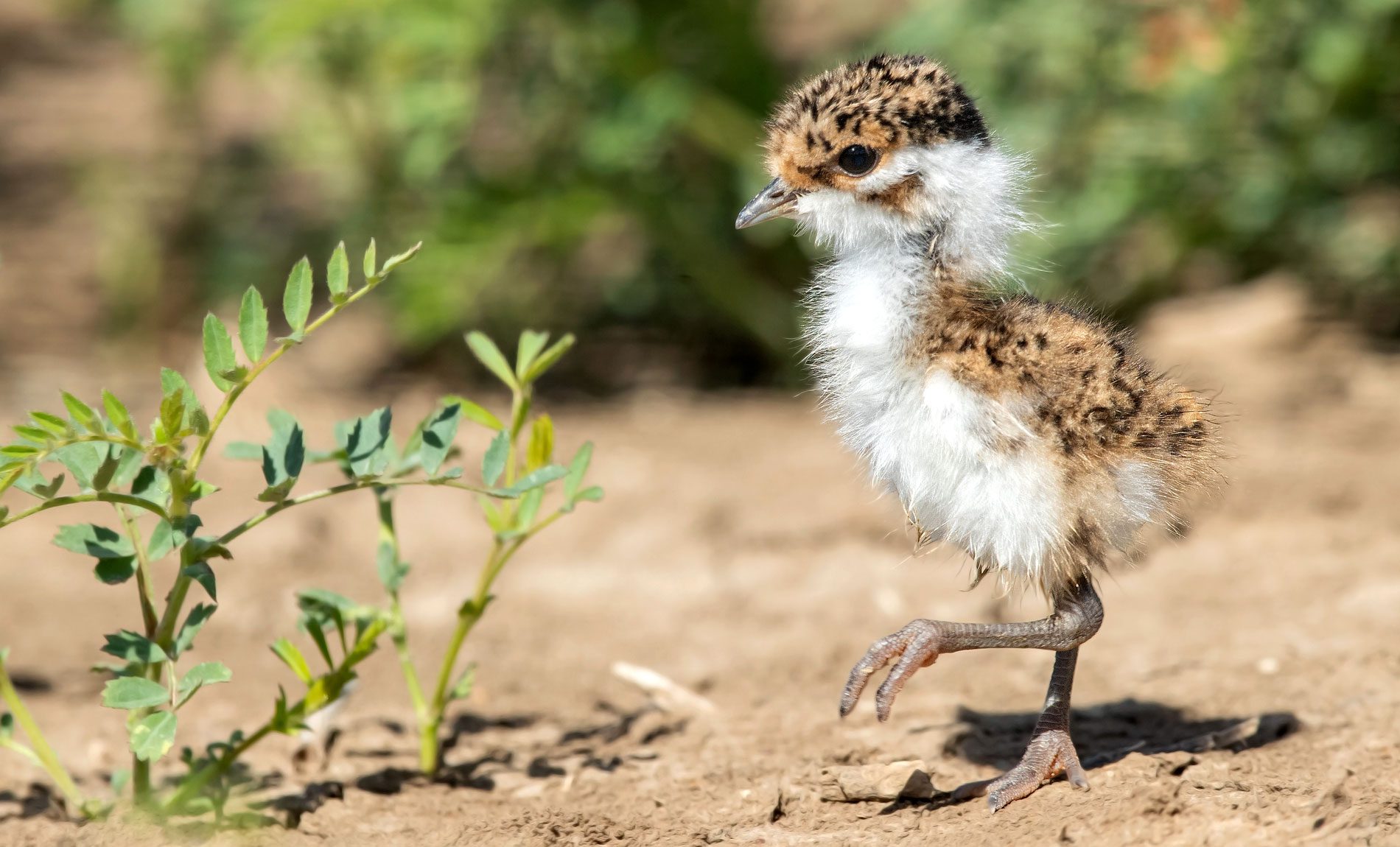
Next Generations
Throughout the Macaulay Library archives, photos of juveniles show all the precious moments and quirks of birds early in life, from a young Tufted Titmouse learning how to perch to a little Banded Lapwing marching out to explore the area beyond its nest. “One of the greatest things about looking through the Macaulay Library photos is the ability to witness the lives of young birds, from getting their first foods from parents to the very first moments of fledglings just off the nest,” says Borgmann. “Seeing the next generations of birds always gives me hope for the future.”
White-tailed Goldenthroats, Brazil, by Claudia Brasileiro
Crested Treeswifts, India, by Melvin Jaison
Common Eider, Canada, by Alix d’Entremont
Tufted Titmouse, USA, by Fran Meyerson
Chinstrap Penguin, Antarctica, by Noah Strycker
Sandhill Crane, USA, by Matt Felperin
Barn Swallows, Spain, by Yeray Seminario
Common Ostrich, Namibia, by Jaap Velden
Malachite Sunbird, South Africa, by Regard Van Dyk
Thank You, Photographers!
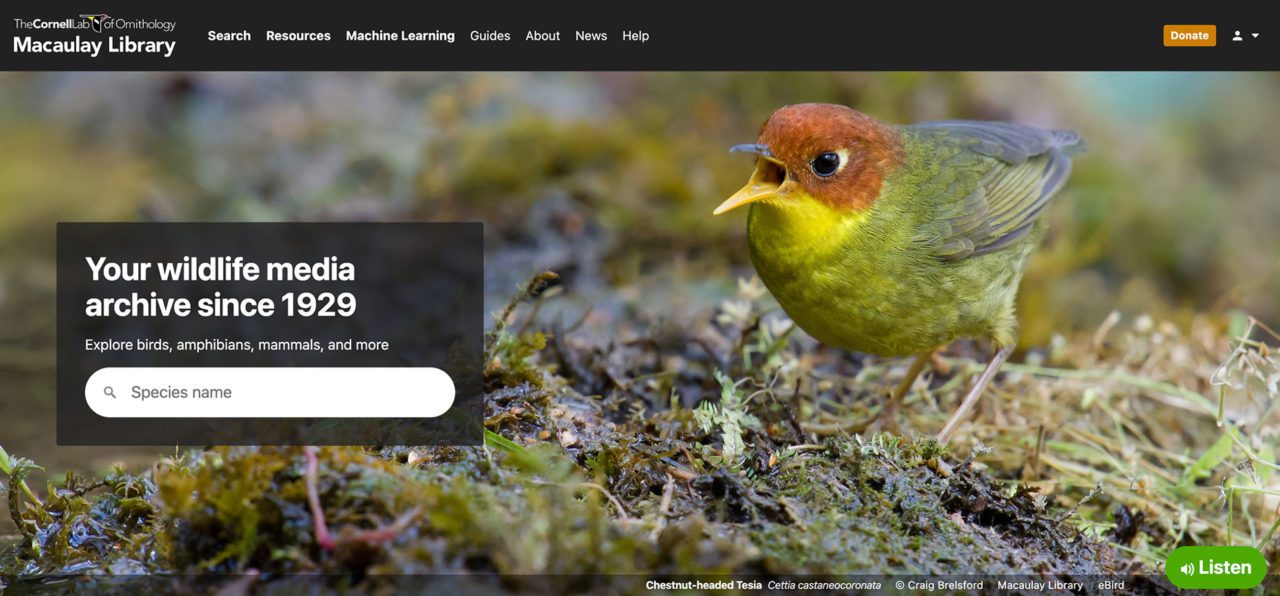
The Macaulay Library’s extensive and growing collection is a tribute to its passionate community of birders and photographers. We’re sharing the photos in this article with deep thanks to those talented contributors (some of whom are pictured here) and to all of the more than 100,000 eBirders who have contributed photos to the library. Every photo in the library serves to educate and inspire. From everyone at the Macaulay Library, we thank you for sharing your photos and audio recordings to spread the joy of birds and power of conservation.

All About Birds
is a free resource
Available for everyone,
funded by donors like you
American Kestrel by Blair Dudeck / Macaulay Library
